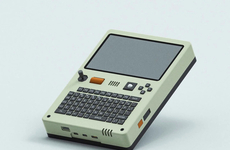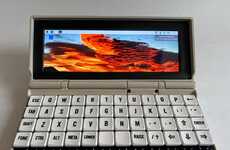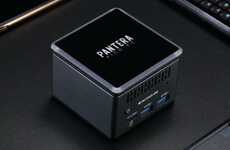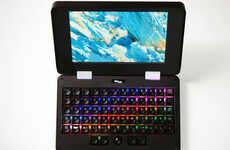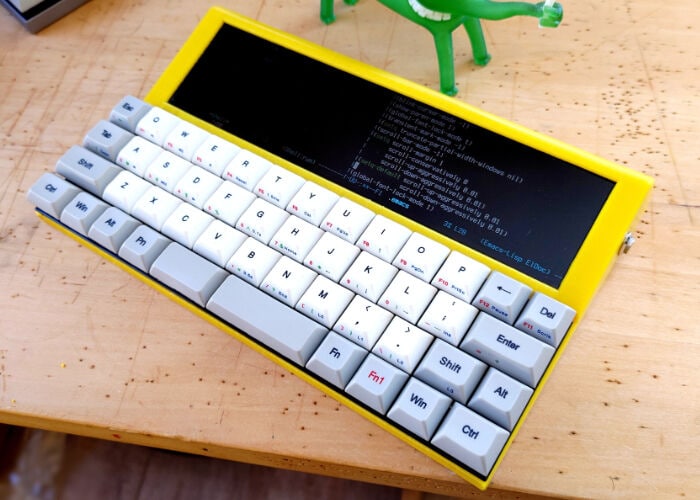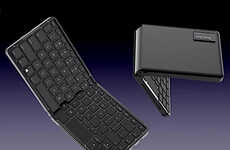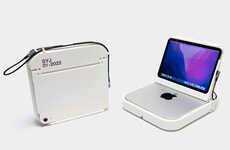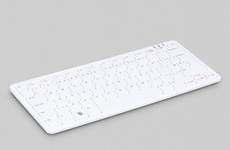
The 'Lisperati1000' Portable Programming Workstation is Compact
Michael Hemsworth — February 8, 2021 — Tech
References: geeky-gadgets
The 'Lisperati1000' portable programming workstation has been created by Conrad Barski as a solution for users who are in need of an ultra-compact hardware option to use when out of the house and beyond.
The system is powered by a Raspberry Pi Pico microcontroller and is outfitted with a keyboard along with an 8.8-inch display that features a resolution of 1,920 x 480 pixels. All of the components are held within a 3D-printed case, while the keyboard is reported to be approximately 40% the size of a traditional full-size keyboard.
The 'Lisperati1000' portable programming workstation is powered by two 4,400mAh battery packs that are rechargeable to put a focus on the ability to truly go anywhere without leaving work or hobbies behind.
The system is powered by a Raspberry Pi Pico microcontroller and is outfitted with a keyboard along with an 8.8-inch display that features a resolution of 1,920 x 480 pixels. All of the components are held within a 3D-printed case, while the keyboard is reported to be approximately 40% the size of a traditional full-size keyboard.
The 'Lisperati1000' portable programming workstation is powered by two 4,400mAh battery packs that are rechargeable to put a focus on the ability to truly go anywhere without leaving work or hobbies behind.
Trend Themes
1. Portable Programming Workstations - There is an opportunity for the development of more portable and convenient programming workstations that are small yet yield powerful performance.
2. Microcontroller-based Computing - There is the possibility of developing more advanced microcontroller-based computing systems that can perform high powered computing in more compact devices.
3. 3D Printed Computing Components - There is potential for more economical and customizable computing hardware through the use of 3D printing technology.
Industry Implications
1. Computer Hardware Manufacturing - Companies in the computer hardware manufacturing industry can explore the trend of producing more portable and compact workstations with high-powered performance.
2. Electronics Manufacturing - There is an opportunity for electronics manufacturers to develop advanced microcontrollers and other components that can be used in more compact computing devices.
3. 3D Printing and Prototyping Services - 3D Printing and prototyping service companies can leverage the potential of creating more economical and customizable computing hardware components or even entire systems through 3D printing technology.
6.2
Score
Popularity
Activity
Freshness



